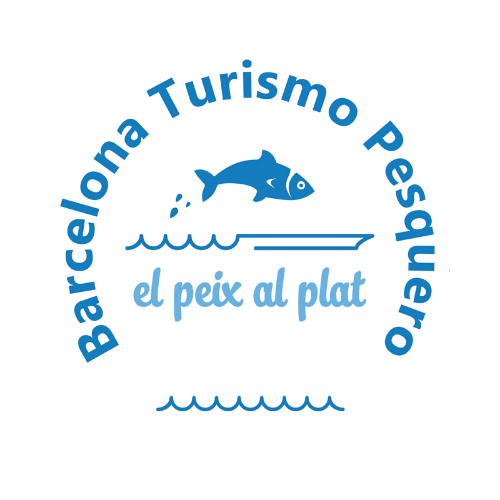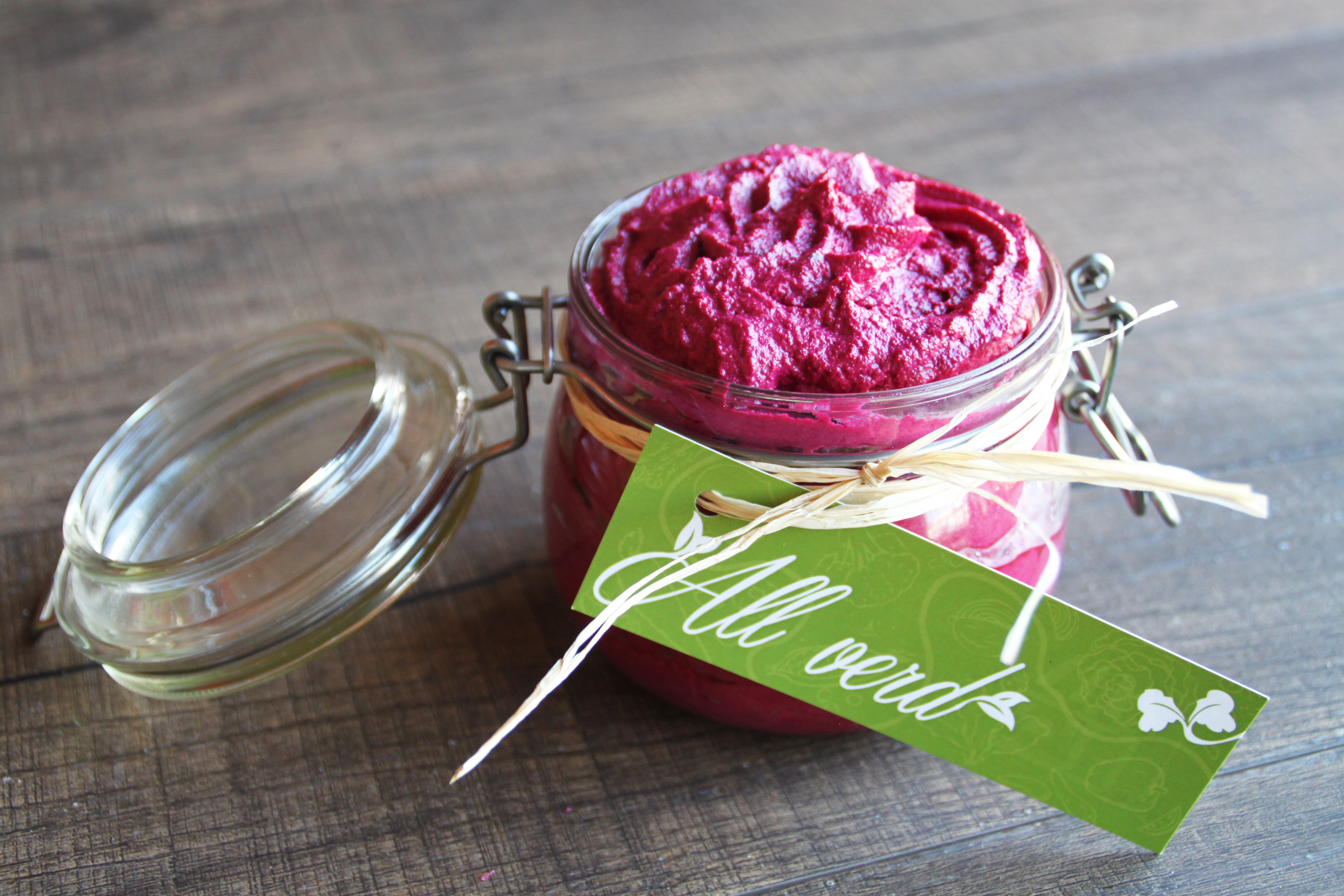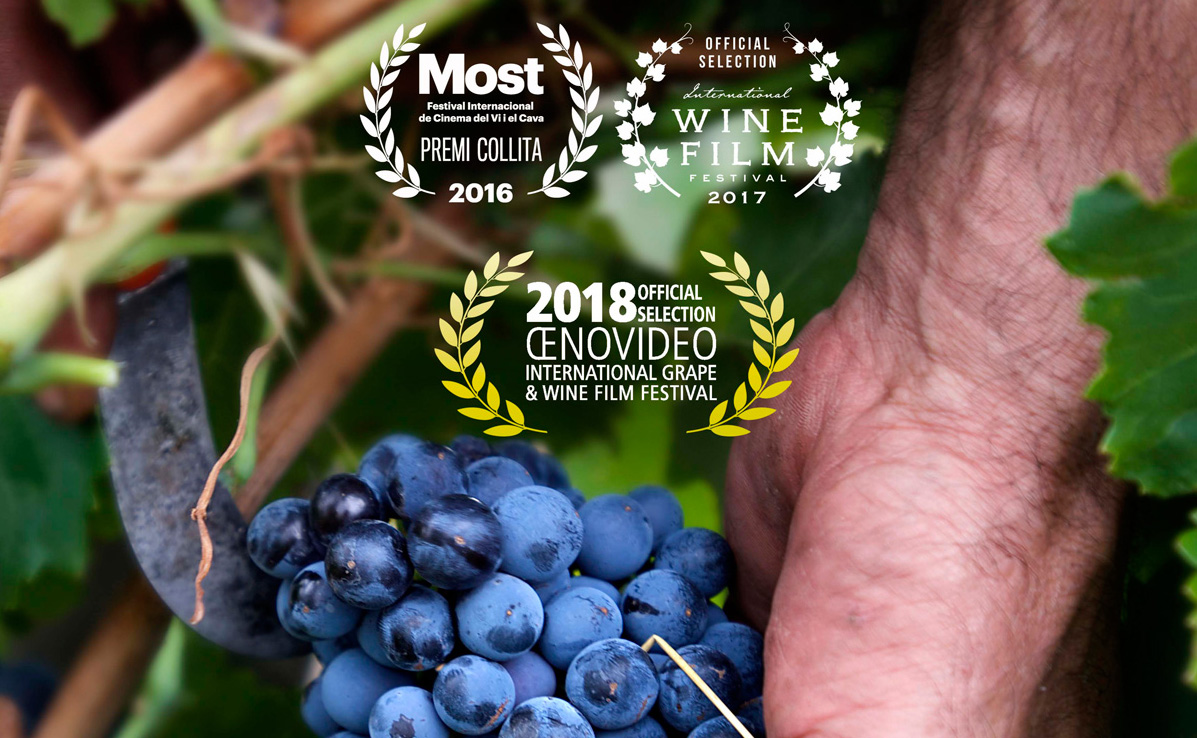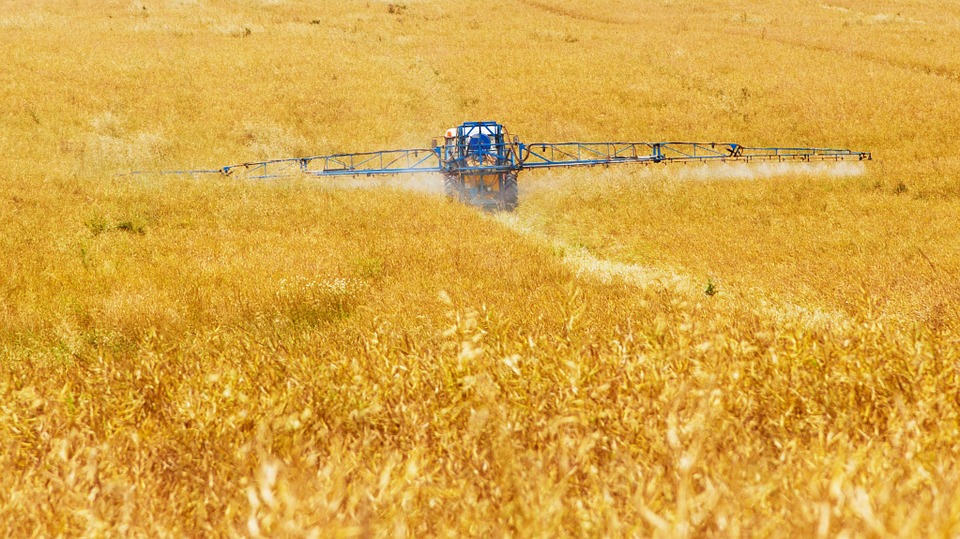Doing it for the pleasure of caring for ourselves and finding a balance, without restrictions or feelings of guilt.
A healthy relationship with food, making the most of seasonal produce and letting creativity into our kitchen, even if it's only for the lunch box we take to work.
We’ll try, using uncomplicated recipes, tastes, aromas and colours. We'll emphasise the importance of colour in our dishes.
Emotions and healthy eating go hand in hand.
Sustainable Food Citizen Week
Video resum de la Setmana Ciutadana de l'Alimentació Sostenible 2021
The activities of the Sustainable Food Citizen Week
Sustainable Food Citizen Week provides an opportunity to understand the relationship between food habits and cross-cutting aspects such as the climate emergency, local economic development, culture, politics, social rights and health. A week dedicated to citizens, in which you will achieve knowledge, reflection and debate about the main issues of the following activities.
Gastronomic heritage
- October 21st - 18.00 HBetevé broadcastingTelevised cooking workshop
- October 22nd - 22.00 H (variable according to betevé programming)Betevé broadcastingDocumentary film season
Documentary on natural wine in Spain. A trip from the north to the south of the country, with the vineyard and wine as the background.
A reflection on natural wine from its producers and opinions from renowned sommeliers.
This activity is part of Betevé's documentary film season, including the films Fermentación espontánea, Taste the waste, Food for change and Il mare piange.So you can combine the documentary with a wine tasting at home, we provide you with a list of wines by order (and time) of appearance.
Minute 01 – Sparkling wine from an ancestral method made in the Alt Empordà. Sparkling wine with unique fermentation.
Minute 05- Red wine from the mountains, made on the north side of the Alpujarra in Granada.
Minute 10 – Mineral and fresh wines made in the Sierra de Gredos (Avila), mainly with Garnacha, also with local white varieties such as Chelva, Albilla Real and Malvar.
Minute 13 – Red wine from the Sierra de l’Albera, in the Alt Empordà, made with Garnacha and Carignan (Lledoner and Samsó).
Minute 16 – White wine with maceration of the skins (orange wine) from Penedès made with Xarello from old vines worked within biodynamic parameters.
Minute 19 – Light red wine made with Sumoll, a native grape of the Penedès. From vineyards surrounded by forests of the Alt Penedès.
Minute 23 - Red wine from Galicia from a heroic viticulture of micro-plots in the Ribera Sacra area.
Minute 27 - White wine from the La Mancha variety and the most planted in the peninsula: Airén, in this case, comes from very old, free standing vineyards.
Minute 31 - Terra Alta red wine, inland Catalonia. From a dry and warm area, with powerful aroma and flavour.
Minute 36 - Wine with Mediterranean expression, made in clay vats in the region of Murcia, from the Tintorera Garnacha grape variety.
Minute 38 - White wine from Montepila grapes from vineyards surrounded by olive trees in Cordoba. - October 29 and 30 from 12.00 to 23.30 H, and October 31 from 12.00 to 22.30 HLa Rambla de Barcelona (between Centre d'Art Santa Mònica and Colom)Market
“Terra i gust” is a gastronomic project that links restaurants with small producers, an initiative from Barcelona City Council and organized by Gastronomia de Proximitat and Slow Food Barcelona, with the support of the Association of Gastronomy and Tourism of Baix Llobregat and l’Hospitalet.
It will be a place for citizens to see the different stakeholders involved in the value chain of local products and sustainability, and to point out the importance of the small artisanal producer, of maintaining traditions and environmentally friendly techniques, highlighting the union with gastronomy.There will be various different spaces:
- Spaces for sustainable gastronomy
- Spaces for beverages, with the participation of the Barcelona Beer Festival, with a selection of craft beers. Natural wines, filtered water, and kombucha will also be served.
- Producers market with seasonal and ecological products.
- There will also be an area for cooking shows, talks and games for kids-
Waste vs Good use
- October 16th - 10.00 H / 11.00 H / 12.00 h / 13.00 HParc de la BarcelonetaWorkshop
At the edible crockery workshop, children will create their own seasonal spoons, bowls and glasses using domestic technologies, with fruit and vegetables as their materials.
The aim is to offer children and parents a fun, creative activity that involves healthy food.
At the workshop, the children explore the shapes, textures, colours, aromas and tastes of the vegetables, learning concepts such as seasonal produce, location, ecology and properties of the fruit and vegetables. At the same time, the workshop fosters the introduction of these foodstuffs in their daily diets. - October 16 - 14.00 HParc de la BarcelonetaCulinary experience
A free, best-use meal to raise people's awareness about the value of food, preventing food waste and making the best use of food. 200 menus will be served, made using recovered food and a plenty of creativity! Parc de la Barceloneta will become an amplifier for the people and projects that work towards reducing food waste, making the most of food and achieving zero waste. The recovered food is the star of the show! The other ingredient: volunteers. The kitchen will be humming thanks to a team of volunteers who make it possible to recover surplus food, cook and serve the dishes. The selection, cleaning and preparation of all the recovered food is carried out in a fun, relaxed atmosphere. Everyone is welcome! On the same day, we will also be offering recovered food that hasn't been used by the kitchen, at an “adoption stall”, as a donation and act of joint responsibility towards the value of the product.
We hereby inform you that we cannot guarantee that the meals served during this event are free of substances that may cause some type of allergy or food intolerance.
- October 17th - 20.00 HPlaça ReialShow
At the improshow we play with knowledge about food, sustainability and the climate emergency. We’ll be improvising everyday situations connected with sustainable food and local organisations, through humour and based on audience suggestions.
An innovative experience in which the audience will become the authors of stories that are surprising, exciting and fun.
Urban rurality and biodiversity
- October 16th - 10.00 HJardí dels TarongersWorkshop
What needs to be taken into account when creating and managing your own seed bank at home or in an allotment. How to carry out the natural selection of seeds, how to conserve them and manage them.
Creating a seed bank is an initiative that reinforces food sovereignty. Recovering seeds is an act of empowerment, in order to stop depending on agro-industrial lobbies.
A seed bank helps to recover traditional seeds and increase the biodiversity which is being lost year after year. This is an educational activity to highlight the great work being done by farmers and how this contributes to a healthy, sustainable diet in our homes. - October 16 at 14:30hJardí dels TarongersCulinary experience
A guided meal to discover how cooking based on local produce and edible wild plants is good, fun and also essential. We explain the story behind each of these dishes, how they were made, the characteristics of their ingredients, how the species used were traditionally employed, and their potential in the kitchen (and the countryside) today.
The wild plants are the stars of each dish. We begin by explaining the plants hidden in the wild-plant salad with pine syrup, followed by a tasting session of savoury coca cakes using vegetables of traditional agricultural varieties (pumpkins, spinach, onions, etc.), wild plants (purslane, white goosefoot, sow thistles, etc.) and locally-produced cheese. We will end with a tasting session of sweet coca cakes (carob brownie with wood calamint, almond cake with satureja and apple crumble with lemon verbena), accompanied by a home-made ratafia wine or elder and blackberry syrup for the younger participants.
The meal is suitable for vegetarians.
We hereby inform you that we cannot guarantee that the meals served during this event are free of substances that may cause some type of allergy or food intolerance.
- October 17th - 17.00 HParc de la BarcelonetaShow
Transhumance is the seasonal migration of herds in search of pasture land wherever it may be depending on the time of year: pasture land in the mountains in summer and on the plain in winter.
And so are our shepherds, they lead the flock where the public is gathered to enjoy the street theatre. Shepherds, goats and our dog are the main characters. But maybe you will also end up being a protagonist. Do you know how to milk? And how do you do as a wolf?
Ecological footprint
- October 17th - 13.00 HPlaça del ReiTalk
Talk looking at all the most common stages of the life cycle of our food. From the farm to the table, we’ll be pondering the carbon footprint of agriculture, packaging, logistics, cooking, organic waste etc. The overall goal is to provide information for deciding on food which has a lower impact in terms of greenhouse gas emissions. The session will also stress the contradictions in environmental communication for consumers.
- 17th October 13.30 hPlaça del ReiTalk
What are the impacts of our food system on our planet? How does this affect the peasantry, our territory and the communities of the global south? What role does the food industry play? What can we do as consumers? What is the role and situation of women, who have traditionally fed the world? On all these issues, we offer you an exciting dialogue with Vandana Shiva (Indian climate activist, graduate in physics, philosopher, ecologist, feminist and author of more than twenty books and 300 articles in the world's most prestigious scientific journals) and Esther Vivas ( activist, researcher in social movements and agricultural and food policies, degree in journalism and diploma in higher studies in sociology from the Autonomous University of Barcelona).
- October 17th - 17.30 HPlaça del ReiRound table
The current industrial agri-food system generates a series of environmental conflicts that are manifested through struggles and mobilisations in response to the impact this system has on the environment and society. These conflicts are mainly associated with the defence of environmental conditions or equal access and distribution of natural resources, often occurring in production and transit areas, and ultimately affecting the regions and communities where they happen. They often reveal conflicting interests, different development paradigms, and aspects related to involvement in decision-making.
The aim of this roundtable is to address some of the main current socio-environmental conflicts in Catalonia, arising from the food system, and to understand the causes and impacts both in Catalonia and the Global South, in order to make them visible, encourage dialogue and provide possible solutions or alternatives.
Proximity
- October 17th - 20.00 HPlaça ReialShow
At the improshow we play with knowledge about food, sustainability and the climate emergency. We’ll be improvising everyday situations connected with sustainable food and local organisations, through humour and based on audience suggestions.
An innovative experience in which the audience will become the authors of stories that are surprising, exciting and fun. - October 19 at 7:30 h / October 20, 21 and 22 at 16:00 hFishermen's Guild of BarcelonaVisit / Tour
The fish market is a specific part of the Barcelona fishing port where the fish that have been caught during the day are auctioned off for sale. On the occasion of Sustainable Food Week, the market opens its doors so that we can learn about the fleet of the Fishermen’s Guild of la Barceloneta, the various fishing methods used and the environmental impact they have. During the visit, we will talk about the types of fishing and the methods used to catch different species, while learning what a day at the market is like, what species are sold at auction, and what measures are being taken to address the new challenges that are putting marine ecosystems at risk.

- Remnants and futures of agriculture in Barcelona: La Ponderosa, El Rec Comtal and La Casa de l’AiguaOctober 23th from 10.00 to 13.00 HCasa de l'Aigua de la Trinitat NovaVisit / Tour
Are there any allotment estates left in Barcelona? How does Barcelona feed itself? How vulnerable are we, without having land available for producing the food we eat? Discover La Ponderosa, the city’s last allotment estate, the Rec Comtal and water heritage, and fall in love with local produce and sustainable food.
More week
- October 18th from 17.00 to 19.30 HVideoconferenceWorkshop
Sustainable cuisine workshop, open to all. Learn more about healthy eating and cook up a few simple but deliciously tasty dishes!
- October 18th - 18.30 HEl Clot - Josep Benet LibraryTalk
Gaby Susanna is the director of the Aprofitem els Aliments platform.
Half of the food currently wasted would be enough to feed the entire global population that goes hungry. Research, economic and fiscal measures, and legal changes are needed to make this possible.
This year, 2021, Barcelona is the World Capital of Sustainable Food. The city wants to make the most of the event, using it as a tool to kick start a transition towards sustainable food. The purpose of this series is to disseminate some of the central aspects of sustainable food with key experts.
Series coordinated by Lluís Reales. - October 18th from 19.00 to 20.00 HCentre Cívic El SortidorRound table
Food is highly visible on the street, and is the focus of all sorts of activities and events held in public space. We’ll be talking about food traditions over the years in Barcelona, and taking a look at how these have been transformed in recent years.























